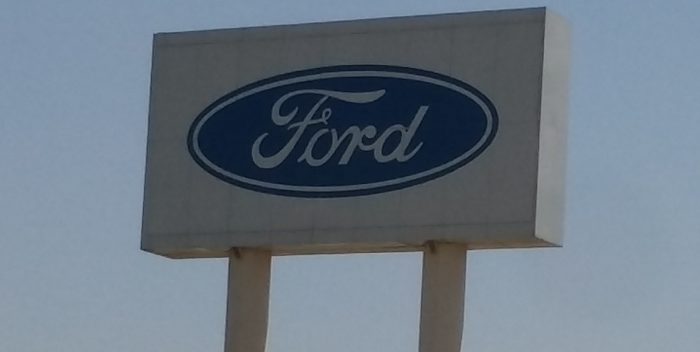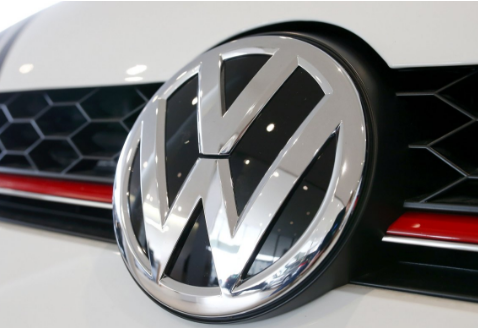Now Reading: Ford to exit Russian auto market, cede control in joint venture
-
01
Ford to exit Russian auto market, cede control in joint venture
Ford to exit Russian auto market, cede control in joint venture

Ford Motor’s Russian joint venture Ford Sollers will shut down two assembly plants and an engine factory in Russia, leaving the country’s passenger vehicle market, resulting in charges of about $450 million to $500 million.
The move is part of a restructuring that is going to see Russia’s Sollers assume control of the venture, that is currently led by the U.S. automaker, the companies stated.
Industry sources informed Reuters this month that Ford thinks about closing Russian plants as it was evaluating operations in unprofitable regions.
The automaker stated the closures would result in significant job losses, along with the closure of assembly plants located in Naberezhnye Chelny and St. Petersburg, and an engine plant in Elabuga. The restructuring follows
Ford also has been negotiating to extend a commercial vehicle and pickup truck alliance with Germany’s Volkswagen, with investors focused on possible partnerships around the development of electric and self-driving vehicles. Those discussions also include collaborating together regionally, including possible plant consolidation. A Ford spokeswoman stated the talks are ongoing.
A restructured Ford Sollers will concentrate on commercial vehicles, while passenger vehicle production will shut down by the end of June, the companies stated.
“The new Ford Sollers structure supports Ford’s worldwide redesign strategy to expand our leadership in commercial vehicles and to expand the business in Europe in those market segments that offer better returns on invested capital,” Steven Armstrong, president of Ford of Europe, stated.
Ford was the first international automaker to launch vehicle assembly in Russia, started a plant in St Petersburg in 2002. In 2011, it set up a joint venture with Sollers in which the Ford and Sollers each hold a 50 percent stake, however, Ford has controlled the business since purchasing preferred shares. Under the new structure, Sollers is going to hold a 51 percent controlling interest.
Sales of new cars in Russia are expected to
“The Russian passenger vehicle market has been under major pressure in recent years, with recovery slower than expected and a shift to
Ford stated it expects pretax special item charges of $450 million to $500 million, the majority of which will be recorded in 2019 and are part of the earlier announced $11 billion
Stay Informed With the Latest & Most Important News
Previous Post
Next Post
-
 01Polestar Boss Says It’s Time To Outrun BMW M And Mercedes-AMG
01Polestar Boss Says It’s Time To Outrun BMW M And Mercedes-AMG -
 02Spy Shots: 2027 Mitsubishi Pajero Spotted in Testing Ahead of Possible U.S. Return
02Spy Shots: 2027 Mitsubishi Pajero Spotted in Testing Ahead of Possible U.S. Return -
 032026 Toyota Hilux EV: A Powerful Truck with Silent Torque
032026 Toyota Hilux EV: A Powerful Truck with Silent Torque -
![2027 Mercedes-Benz S-Class Debuts with V8 Engine [Photo Gallery]](https://speedlux.com/wp-content/uploads/2026/01/2027-Mercedes-Benz-S-Class-33-155x125.jpg) 042027 Mercedes-Benz S-Class Debuts with V8 Engine [Photo Gallery]
042027 Mercedes-Benz S-Class Debuts with V8 Engine [Photo Gallery] -
 052026 Corvette ZR1 Production Surges Past Expectations as Output Clears 1,000 Units
052026 Corvette ZR1 Production Surges Past Expectations as Output Clears 1,000 Units -
 06Spy Photos: VW ID. Polo GTI Goes Electric with 223 HP and 280 Miles of Range
06Spy Photos: VW ID. Polo GTI Goes Electric with 223 HP and 280 Miles of Range -
 07Hyundai Palisade’s Breakout Year Shows How Quickly the Market Can Turn
07Hyundai Palisade’s Breakout Year Shows How Quickly the Market Can Turn



![2027 Mercedes-Benz S-Class Debuts with V8 Engine [Photo Gallery]](https://speedlux.com/wp-content/uploads/2026/01/2027-Mercedes-Benz-S-Class-33-700x394.jpg)











































